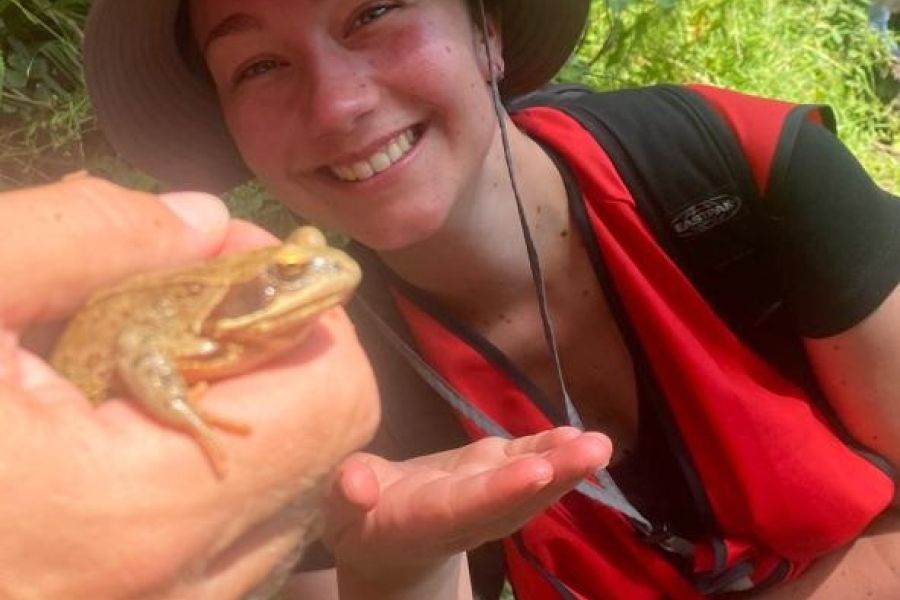How does light affect the clock of insects? An important question in Ivanka’s project

Ivanka Spruijt has started her PhD project at the Leiden University and University of Amsterdam. She investigates the effects of artificial light at night on insects, and more specifically she looks at the plant-insect interaction. If the rhythms within this interaction are disturbed, this may lead to problematic consequences for survival of species.

Who are you?
My name is Ivanka, PhD candidate within the BioClock consortium, currently living in Utrecht. I’m one of the lucky few people that got to turn my hobby into my work, merging it into my life instead of the separated 9 to 5. Every day is different; I get the best of both worlds, without falling into the same daily routine. In the moments that I am not busy with work I mostly read a book, listen to some music, go for a walk or watch bad tv/movies with friends.
What is your background?
I obtained my bachelor’s degree in Biology at Utrecht University; with all-round knowledge on animal behaviour & cognition, (behavioural) ecology, evolution, nature management & conservation, statistics and various research techniques. My bachelor’s thesis discussed the opportunities for the application of animal behaviour studies in species conservation.
After that I completed the master’s Conservation & Restoration Ecology at Radboud University. My first internship research project compared the effects of active and passive reforestation methods after 12 years of recovery in the Atlantic Forest of Brazil. The final MSc research project focused on the characterization of wild bee communities on flower dikes near Nijmegen, and evaluation of potential determinants of community structure and ecology.
What is your BioClock project about?
I will be working on the effect of artificial light at night (ALAN) on plant-insect interactions and the mismatches that potentially arise in pollination, seed predation and herbivory.
This research involves experimental (lab)work and field work to gain insight into the changes ALAN can cause in an urban trophic cascade on both a physiological and an ecological level.
I will be doing this both from the University of Leiden – CML: department of Environmental Biology – and at the University of Amsterdam – IBED: department of Evolutionary and Population Biology – supervised by Peter van Bodegom, Astrid Groot, and Gerard Oostermeijer.
When did you first hear about the biological clock?
Biological clocks are all around. The changing seasons and the differences in activity patterns for different organisms throughout the year were something I noticed, like many people do, at a young age.
What is something that people should know about you?
I’m pretty organized for someone who doesn’t like structure and routine. Also, among lots of things on my bucket list are hiking in Alaska and jungle trekking in the tropics of South America.
Questions for Ivanka: i.spruijt@cml.leidenuniv.nl

The BioClock Consortium is funded by the NWA-ORC programme of the Dutch Research Council (NWO; project number 1292.19.077).